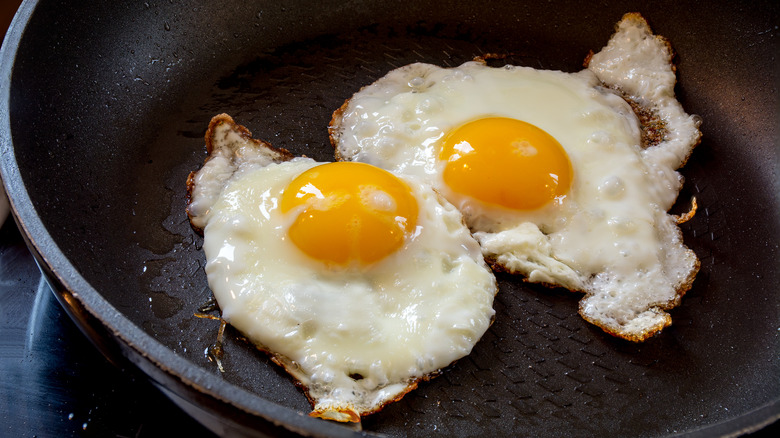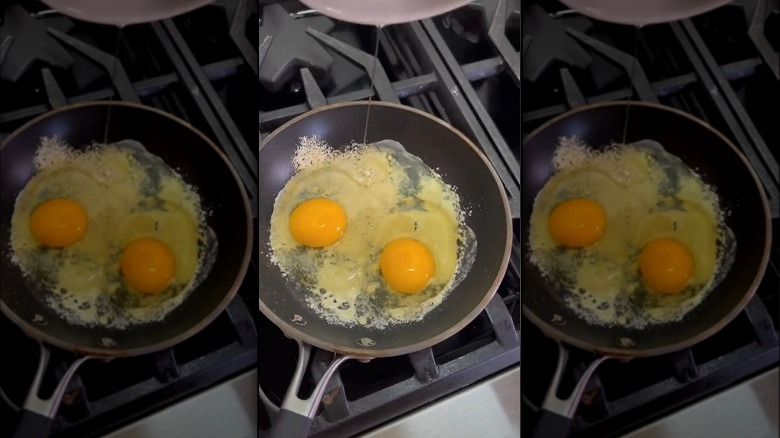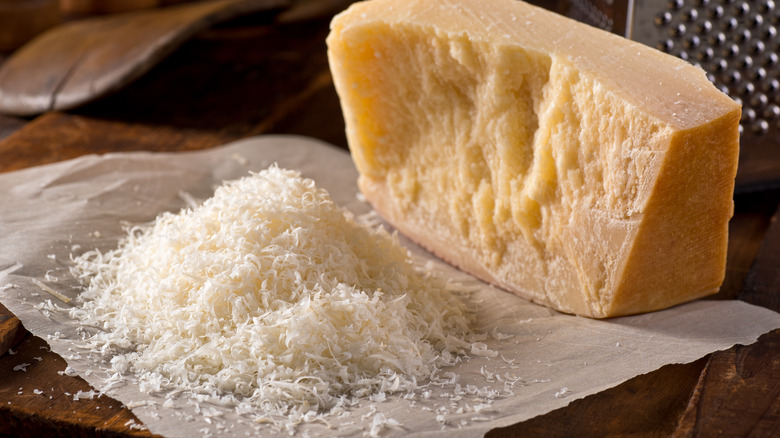What Are Parmesan Eggs And How Do You Make Them?
As long as you have eggs and cheese, you have everything you need to make a delicious breakfast. Whether it be scrambled eggs with a few slices of cheddar melted in or a pimento cheese omelet, eggs and cheese always seem to go hand-in-hand. The reason, according to Well Tuned, is that they share a chemical compound. Healthline notes that eggs and cheese are both high in sulfur, meaning they have complementary flavors.
Though science dictates that any combination of the two ingredients will be delicious, certain types of cheese go better with certain egg dishes. A strong blue cheese, for example, may be too overpowering in a quiche lorraine, where gruyere is commonly used. If you're making a bacon, egg, and cheese sandwich, on the other hand, high-melting cheeses like American or cheddar (via Bon Appétit) will always work better than the hard-aged varieties. As for fried eggs, TikTokers are convinced parmesan is a perfect choice.
Add parmesan to upgrade your fried eggs
A pinch of salt and pepper goes a long way on fried eggs, but if you want to go the extra mile, consider adding parmesan cheese. In most egg and cheese dishes, the cheese is mixed into the eggs or melted on top, but with this TikTok hack, shared by user @cooklikeamother, the cheese forms a layer on the bottom. Like another popular egg hack from the app, pesto eggs, the extra ingredient goes in the pan first, and the egg is fried directly in it.
As she demonstrated in her viral TikTok, @cooklikeamother starts by melting butter in a pan over medium heat before adding a layer of grated parmesan cheese. When the cheese begins to bubble, she then cracks the eggs and lets them fry up for three minutes before turning off the heat and covering the pan to allow the residual heat to cook them the rest of the way through. The resulting eggs are perfectly seasoned with no added salt, thanks to the cheese.
Why does parmesan cheese go well with fried eggs?
Aside from the obvious explanation that eggs and cheese are complementary flavors, parmesan works explicitly well with fried eggs because of how oily it is. According to Dark Cheese, melting parmesan causes the water and fat to separate from the protein. When this happens, the cheese starts to seep oil. The greasiness is why parmesan isn't usually melted in the recipes requiring it, but the oil is critical with fried eggs. Instead of using oil, as you would if frying eggs typically, you're using the greasiness of the parmesan combined with a bit of butter for nonstick purposes.
The longer you heat parmesan, the harder it will also get, Williams Sonoma shares, and for fried eggs, that translates to a crispier end result. Fried eggs are naturally crispy, so if you prefer them with even more crunch and extra cheesiness, adding parmesan will accomplish that.


